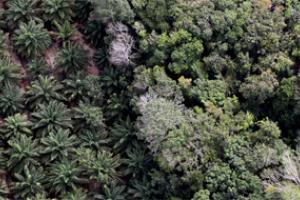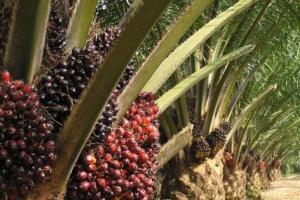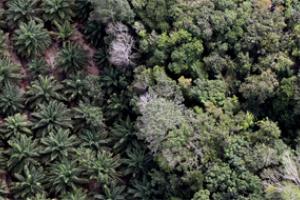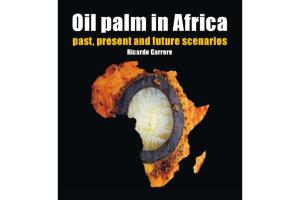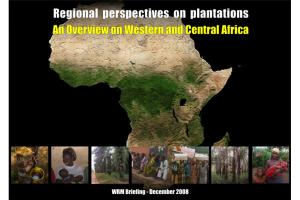Palm Oil
The oil palm tree is native to West Africa. It is an important tree for forest-dependent communities, their cultures and their economies. However, large-scale oil palm monocultures for industrial production (oil and agrofuels) have been driving deforestation and land grabbing in Southeast Asia. More recently, oil palm monocultures are also driving destruction in Africa and Latin America.
Bulletin articles
9 November 2015
**This article is based on a conversation between Winnie Overbeek, the international coordinator of the World Rainforest Movement, and GRAIN on September 2014, which was published by GRAIN at “Planet palm oil”. The information has been updated for this article.
Bulletin articles
7 May 2014
The expansion of industrial oil palm plantations in Africa: A call for greater solidarity and action
Bulletin articles
7 May 2014
Publications
30 August 2013
Governments are opening the doors to corporations for planting vast areas of land with oil palm plantations. This trend is not only happening in West and Central African countries, but is even expanding to parts of Eastern Africa. Large scale oil palm plantations are already causing serious environmental and social impacts in some countries, resulting in loss of community rights over their territories.
Other information
30 September 2011
Publications
15 December 2008
Oil palm and rubber plantations occupy extensive areas in many countries in tropical Africa. In spite of their social and environmental impacts, until now they have received scant attention both at the national and international level.
